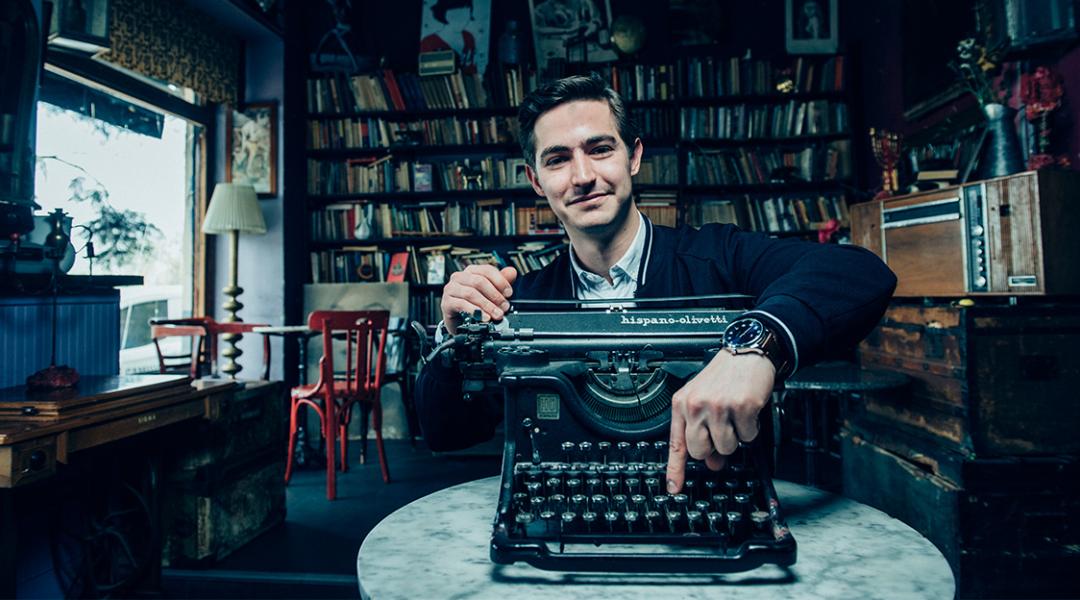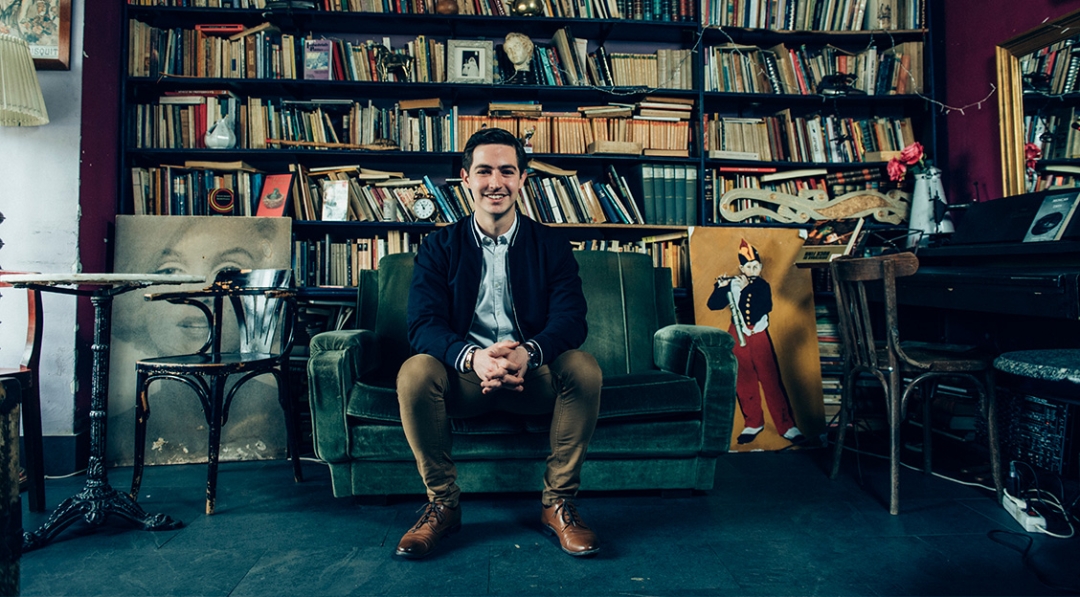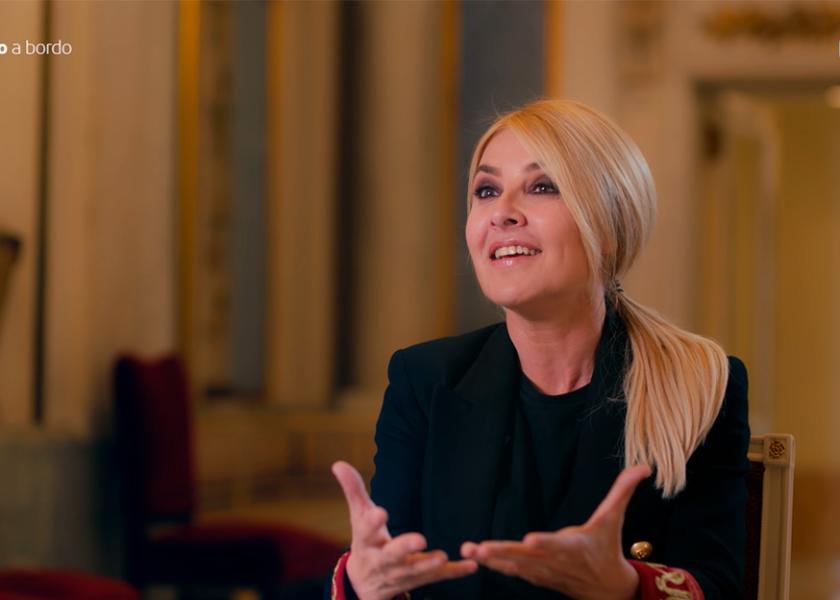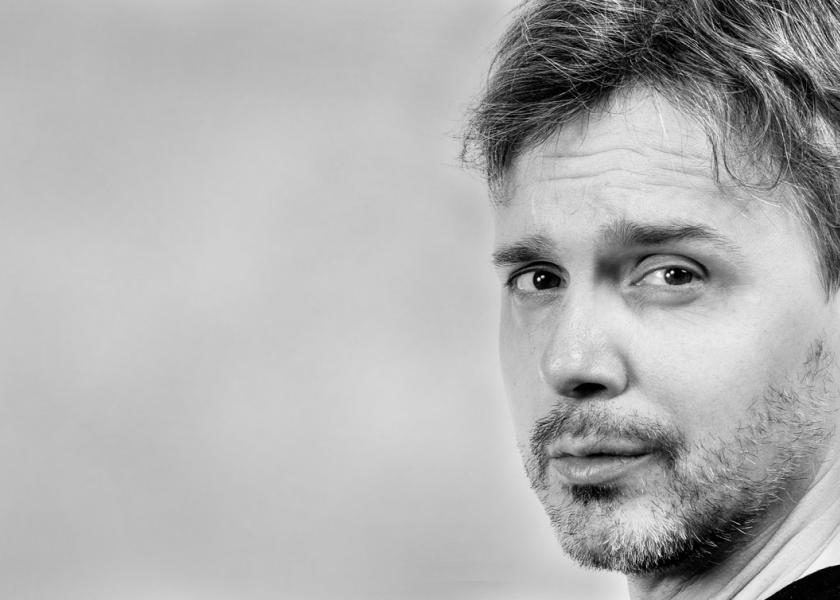Leonel Caschetto
The art of debating

Leonel Caschetto moved from Venezuela to Spain in search of a brighter future. Five years after that decision, words and his gift to transform them into solid arguments have turned him into the world debating champion in Spanish. A title he won in 2022 and which he hopes to ratify in 2023. We meet him in a small cafe in Madrid to chat with him, since debating would be a losing battle.
“I have no regrets because I feel that adversity has the gift to awaken talents that convenience keeps hidden.” This is how Leonel Caschetto (Valencia, Venezuela, 1998) expresses himself when recalling the journey that changed his life. In 2018, he left his home country of Venezuela to cross the pond and start studying Law in Madrid. Today he can say that it was worth it. Five years later, he is the world debating champion in Spanish, a competition organised by LEDU (Spanish University Debate League), whose 2023 edition will be sponsored by Iberia. We meet Leonel in the cute and cosy Café María Pandora in Madrid to check his powers of persuasion.
Where does your passion for debating come from?
When I was about 12, I started taking part in debating competitions. I enjoyed adapting to the positions I was assigned to defend. I felt like I was good at it and considered it an activity that complemented my studies. I learnt from each debate and that’s why I continued doing it over the years, first at school and now at university.
“I feel that adversity has the gift to awaken talents that convenience keeps hidden”
Have you had a role model or someone who inspires you?
No one specifically comes to mind. I enjoy seeing good public speakers and learning from them, taking the best qualities from each of them and adapting them, putting my spin on it. To mention a few public speakers, I like Barack Obama or King Felipe VI. I feel like they are brilliant people, with really formal, stately and impeccable public speaking.
For those unfamiliar with this world, what are debates like?
Basically, they are debating competitions where you have to defend a position in favour of or against a certain topic. At the end of the day, it consists of persuading, building arguments to strengthen your position and also formulating rebuttals to invalidate or discredit those of the opposition.
Along these lines, how do you prepare for debates?
Once I have prepared my arguments, I like to break them down one by one, delving into each of them and studying their weaknesses to be aware of where I can be attacked. The goal is to prepare a defence to be ready and maintain the most solid position possible against attacks.
“Debating consists of persuading, building arguments to strengthen your position and formulating rebuttals to discredit those of the opposition”
How do you feel when you’re taking part in a debate?
At the beginning, full of nerves. Always. But I think it’s good to feel nervous because it reminds you that you’re doing something different, you’re stepping outside of your comfort zone and growing, challenging yourself. Once the debate starts, those nerves go away, you take control of the situation and when you finish, whether you win or lose, you’re left with the satisfaction of overcoming it and learning something new.
How do you manage the pressure prior to a debate? Do you have any rituals?
Yes (laughs). I call it “visualisation” and I think it’s really important. It consists of bringing to mind past experiences in which you’ve done well or imagining future experiences where you’re doing a good job. Psychologically, this process, apart from calming your nerves and anxiety, makes you feel more certain and confident. I think this makes a big difference and has a direct impact on your stage presence.

Leonel Caschetto studies Law at University Carlos III in Madrid. © Alfredo Arias
Defending what you believe in seems simple enough, but what happens when you have to defend the opposite?
I see it as a challenge, as a chance to expand my logical reasoning, in the sense of not taking shelter in what I believe and giving myself the opportunity to understand the opposite position. In the end, nobody owns the truth, and we can always learn something from other positions and views.
What role does talent play in these debates?
In the world of debate, being talented, understood as an innate capacity for a certain discipline, can help you. But it’s not enough, you always have to train that talent and work on it. Debates include, on the one hand, the format, and on the other, the content. Some people are naturally good at the format, which is the way speeches are given, including staging, without necessarily studying or practicing. Working on the content, which consists of preparing the arguments and connecting reasonings to give better answers, is essential.
“Someone who can convey a complex idea using a simple message has a significant advantage in this game”
Which three talents does an expert public speaker need to have?
Firstly, the ability to make something difficult easy. Someone who can convey a complex idea using a simple message has a significant advantage in this game. Secondly, the ability to arouse emotions. We’re emotional human beings and our decision-taking is highly influenced by the emotions we feel. And the third talent would be good time management. During competitions, time is limited, and you have to know when to generate the required impacts.
A new edition of the World Debating Championship will be held in October. What do you expect from it? Can you see yourself winning the title again?
Knowing the hard work and passion that goes into it, I’m sure it will be of the highest level, with the best organisation and we’ll learn a lot. Also, since Iberia is sponsoring it, if someone from Argentina, for example, makes it to the final, which will be held in person this year, they will cover that person’s travel to the headquarters. This will increase the quality of the competition. The expectations for this partnership with Iberia are high. Can I see myself ratifying the title? All I can say is, if circumstances allow, I’d love to take part again.

